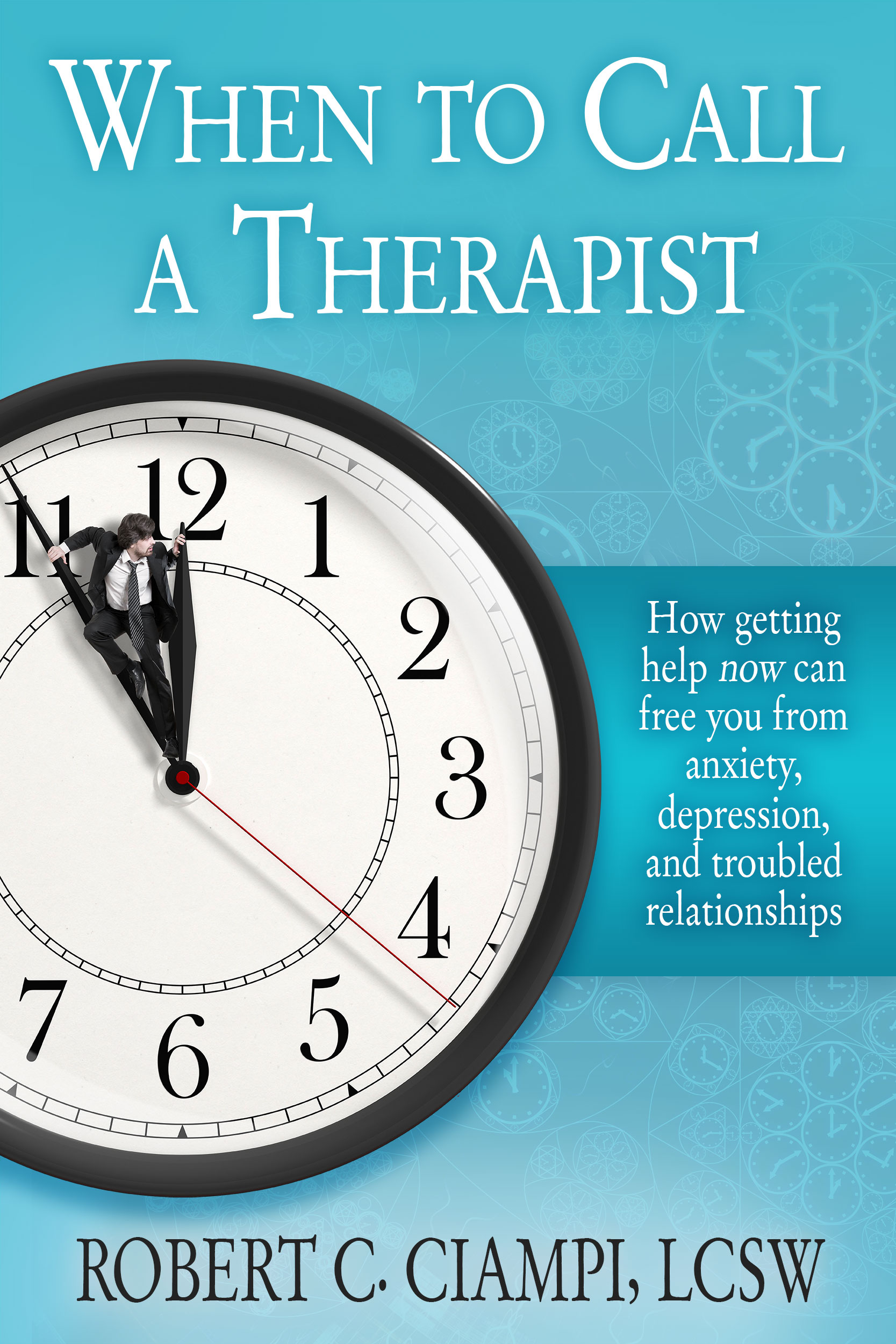The classic definition of stress is the response our bodies and minds have to the demands placed upon them and the interpretations we assign to those demands. Stress can actually force us to prioritize our tasks in a way that allows us to begin to tackle the most important work first, triggering adrenaline as a way to compensate for the perception that there’s just too much on our plate and we do not have time to accomplish all our tasks. And when we begin to see the light at the end of the tunnel, we feel better when we know our situation was only temporary. Imagine planning a surprise birthday party for your spouse. You think about the phone calls you have to make, scheduling the event, inviting the guests, buying and preparing the food or booking a reservation at a favorite restaurant, working hard to keep it a secret, and the countless other parts of planning a successful event. This can all produce stress. But once the party begins, you start to relax a little as you look around to see friends and family enjoying themselves. At the end of the party, you can finally sit down, put your feet up, and relish in the fun everyone had. Stress and anxiety built up to the time of the actual event, but in the end, everyone agreed that a great memory was made. Short-term pressure and mild anxiety, a task completed, and having a sense of satisfaction are the good parts of stress. But there is a not-so-good side that can cause great harm.
Stress and Burnout
When we experience stress for an extended period of time without being able to alter, change, or ameliorate it, we can begin to feel empty, numb, devoid of motivation, hopeless, and beyond caring. Burnout is a state of emotional and physical exhaustion caused by excessive and prolonged stress.
The definition of burnout was first coined by psychologist Herbert Freudenberger in 1974, when he described it as “a depletion or exhaustion of a person’s physical or mental resources attributed to his or her prolonged, yet unsuccessful striving toward unrealistic expectations, internally or externally derived.” Burnout is about not having enough energy, motivation, or passion. The thought is usually “I know it will never get better.”
As you can see, there is a major distinction between stress and burnout—stress involves too much and burnout not enough. Everyone experiences stress in one form or another—in raising a child, in schoolwork, at our job, in having an ill family member, with financial pressures, in marital problems, with addiction, and with being homeless. Using the example of a homeless person, constant and prolonged stressors may include not having shelter in inclement weather, inadequate food, poor hygiene and medical problems, untreated mental illness, the risk of addiction, and encountering a bad element on the streets. In the face of the day-to-day, constant stressors of anxiety, depression, and in many cases post-traumatic stress disorder, with no end in sight, we can see how someone can turn from thinking that their situation is temporary and resolvable to the helpless and hopeless thoughts that being burned out can bring. Without some form of intervention, it’s easy to see how someone can remain stuck, apathetic, and lack any physical or mental energy to change their situation.
However, not everyone’s situation is as dire as someone who is homeless. Stress and burnout can also affect someone who is employed and appears, at least from the outside, to be doing well. Many jobs, including both blue- and white-collar jobs, come with a great deal of stress. Among other things, the stress can stem from the requirements of high-level performance, having to step up when a problem emerges, responsibility for staff productivity, and working in difficult environments, sometimes with difficult people. Those in the helping professions, especially doctors, social workers, nurses, and techs, are all prone to stress, burnout, and what is often called “caregiver fatigue.” Those who work with complicated medical cases, with children and adolescents, with the elderly, with acute psychiatric patients, and with addicts, prisoners, and the abused and neglected are at high risk for burnout. Who else is most vulnerable to burnout? Those who
- work exclusively with distressed persons
- are charged with the responsibility for too many individuals
- “personalize” their work
- have an inordinate need to save people
- are overly perfectionistic and idealistic
- feel guilty about their own needs
- work with others who are burned out
- experience a lack of appreciation by superiors, coworkers, and maybe even family
- have unrealistic goals that are daunting rather than motivating
- experience “vicarious” trauma (traumatized by another person’s trauma)
No matter the situation, burnout can occur if you are lacking the awareness as to what all that stress is doing to you. Where most of these are familiar stressors, we don’t often talk about the last—experiencing vicarious trauma. Let’s take a look at that now.
Absorbing Others’ Trauma
Vicarious trauma (VT) is a condition particular to those who work in close contact with trauma survivors. In some cases, these people will empathically take on aspects of the trauma the survivor has experienced. This can result in symptoms similar to those of trauma survivors themselves. Making sure to prioritize self-care, maintenance of healthy boundaries with clients, and early detection of symptoms can all help to minimize or eliminate the onset of VT. Some questions to ask yourself when working with trauma survivors:
- Are you re-experiencing your own past traumatic events?
- Are you experiencing a blunting of affect, a numbing, a loss of feeling, or a tendency to avoid reminders of a past traumatic event?
- Do you have a heightened or exaggerated sense of being startled?
- Do you experience dramatic alterations in your outlook or worldview?
- Have you begun to demonstrate signs of antisocial behavior that were not present before working with your patient?
- Are your basic interpersonal relationships becoming dramatically affected?
One way to avoid vicarious trauma is to not personalize the work. It takes a lot of training and experience to work in a caregiving setting like a hospital or nursing home every day, but for some, being thrust into a new role they are not prepared for can lead to burnout. Many adults find themselves in the role of being caregivers to their parents. Some have the help of others or the resources to provide the necessary care, but others do not have that luxury and must do it alone. Too much stress without relief can lead to burnout, and if the caregiver becomes ill, who is going to take care of the two of them?
*A person can get so burned out they become apathetic about everything, including self-care, which could lead to hospitalization. A person may get to the point where they not only become physically ill but emotionally ill as well. It is much easier to learn how to prioritize tasks, live one day at a time (sometimes one hour at a time), and discuss stress-reduction techniques than try to recover from burnout. If you find yourself headed for burnout from the constant barrage of stress, call a therapist now!
Stress-Reducing Self-Care
When we talk about self-care, what thoughts come to mind? Eating right, getting enough sleep, and going to the gym? That’s a great start, but it may not fix everything. Let’s take a look at several areas of self-care that can help prevent burnout.
- How you are feeling, thinking, and behaving? Awareness of these things is key. Without introspection or insight, we can become robotic in our daily routine, just going through the motions regarding work, personal time, and our families. Even though it may be difficult to recover from burnout, it is not impossible, and an honest self-assessment will help you figure out how you became burned out in the first place. Without this knowledge, you risk repeating negative behaviors over and over again.
- How important is a comprehensive self-care plan to you? This is one of the first questions to ask yourself before getting started. Be honest with yourself and decide if now is the right time to start. Perhaps you are not ready yet. It may be better to know that you are not ready than to go into it half-heartedly and set yourself up for failure.
- How have past negative self-care experiences set habits in motion that may make present self-care challenging? If you have tried in the past to get on a path of self-care but did not succeed, what got in the way? A big part of self-care is being kind to yourself and not making your stress any worse than it already is.
- A healthy work-life balance is an important aspect of our overall health. What does your work-life balance look like? Our personal and work lives are both part our everyday lives. How do you know if you have a good balance? Do you spend too much time at the office in order to delay going home to an unhappy environment? Are you not motivated enough to live the kind of lifestyle you would like to live? Having a good work-life balance can enhance your life so you can be productive and have much needed downtime as well.
- How do you process your “unfinished business” or baggage from the past so that you have energy for new challenges? Carrying the past around can drain you of the strength to embrace new experiences in the here and now. Get rid of the old to make room for the new. You will feel better for it.
- How and with whom do you spend your leisure time? Do you spend your leisure time doing what you really want to do and with whom you want to do it, or do you go with others’ ideas of what you should be doing? It’s better to be alone with your own company doing what you want than to be miserable doing things you really don’t want to do with others. This distinction can be the difference between being happy or unhappy.
- How much quiet, or personal, time do you set aside for yourself each day? A lot of people feel that they cannot take some time for themselves and feel guilty just thinking about it. Everyone needs to “recharge their battery” and be alone with their thoughts, if only to stop, breathe, and feel the sunshine. That just may be enough to get you going again.
- Can you delegate some of your tasks? Do you have to do everything yourself, or can you ask for help? Some are afraid to ask for simple favors, but you’d be surprised how willing others are if you would only ask them for help. This action is the cornerstone of being assertive.
- Are you able to access resources that can help you manage your problems? No one can solve all their problems alone. If you find yourself in a situation and are not sure where to turn, can you find the resources to help guide you through the problem? Knowing where to look for help is just as important as knowing how to resolve issues yourself.
- A vacation away from home may be the start to finding peace within and to rest our tired body and mind. Not everyone can take a vacation, but vacations need not be expensive. The idea of going away, if only for a couple of nights, is to change the view from the same four walls you see day in and day out. A simple break can be enough to reassure yourself you are capable of relaxing and that in the future, you may be able to do more of it.
- Self-care is also about making decisions and you may need to make the biggest decision of all: to leave the job that is making you sick. Unfortunately, some people do not have the option to make a change like that, at least not immediately, but at least they should start a plan to leave. Just taking this proactive step can provide a sense of hope and empowerment. In some cases, people feel “stuck” in their jobs, which can add even more stress. If you find you dread going to work every day, whether it’s because of a boss who is unfair, an overload of work, or employees who make the job environment a difficult place (or a combination of all three), it may be time (often it’s past time), to begin looking for a position elsewhere. Your health depends on it.
The above list is certainly not exhaustive, but it will give you an idea of ways to cope with stress to avoid burnout. There are many areas of self-care where you can unwind and get the rest your body and mind needs to recharge. Burnout is a matter of recovery from a debilitating state of emptiness and exhaustion from which it takes time recover. A strategy I often recommend to my clients is to take life one day at a time or, even better, one hour at a time, breaking up the pressures we face into manageable chunks. It works for me! Give yourself the time you need to “detox” from the day-to-day “addiction” you experience every day. And remember to call a therapist as soon as you begin to feel overly stressed with everyday life.

*Excerpt from When to Call a Therapist by Robert C. Ciampi, LCSW, June, 2019, Scrivener Books, with permission from the author and publisher.
Follow us here and subscribe here for all the latest news on how you can keep Thriving.
Stay up to date or catch-up on all our podcasts with Arianna Huffington here.


